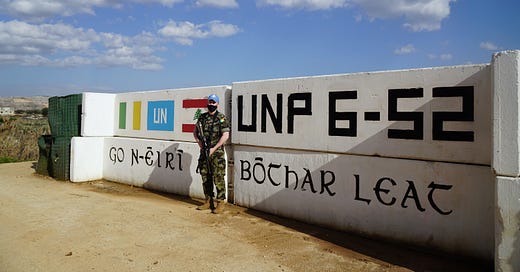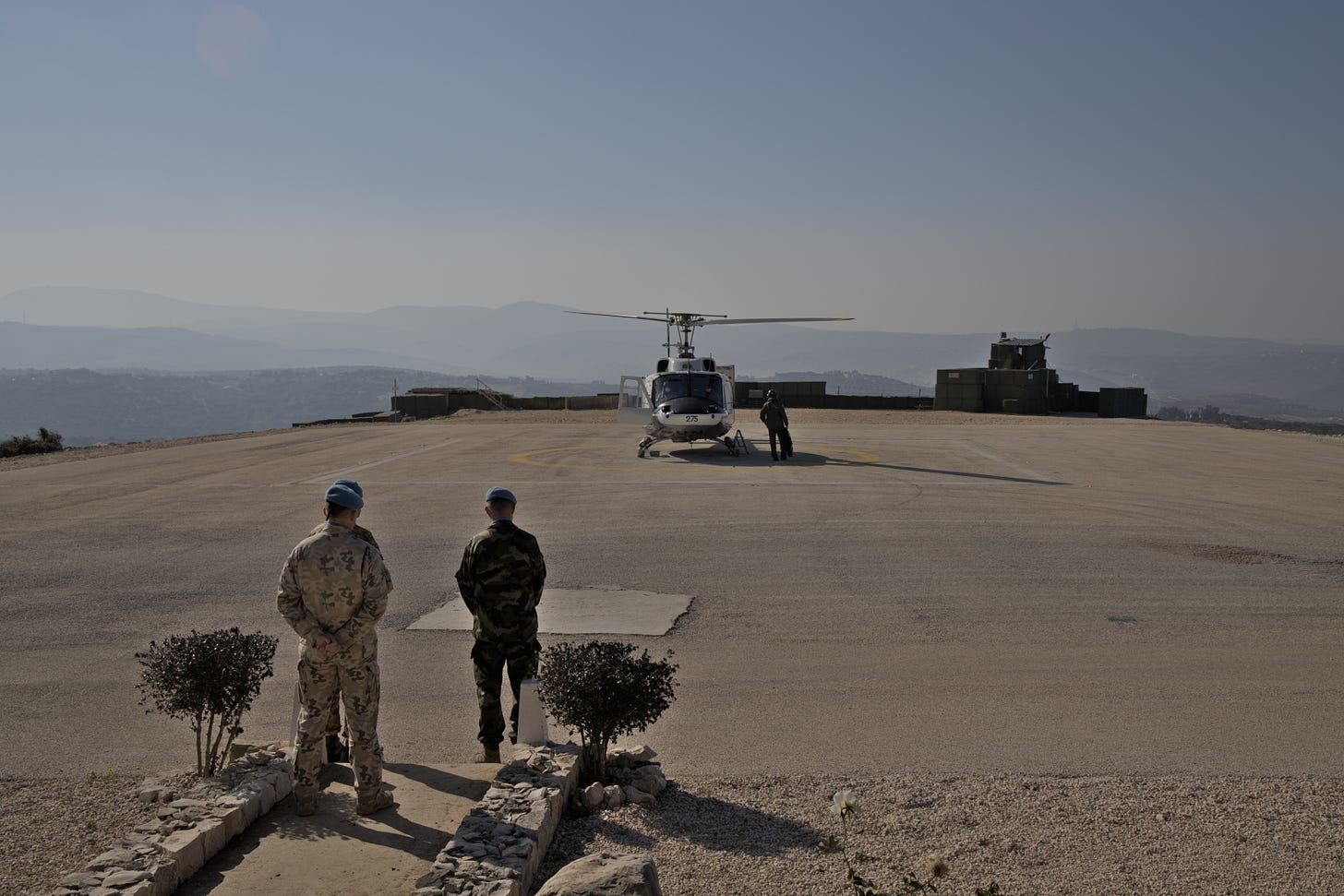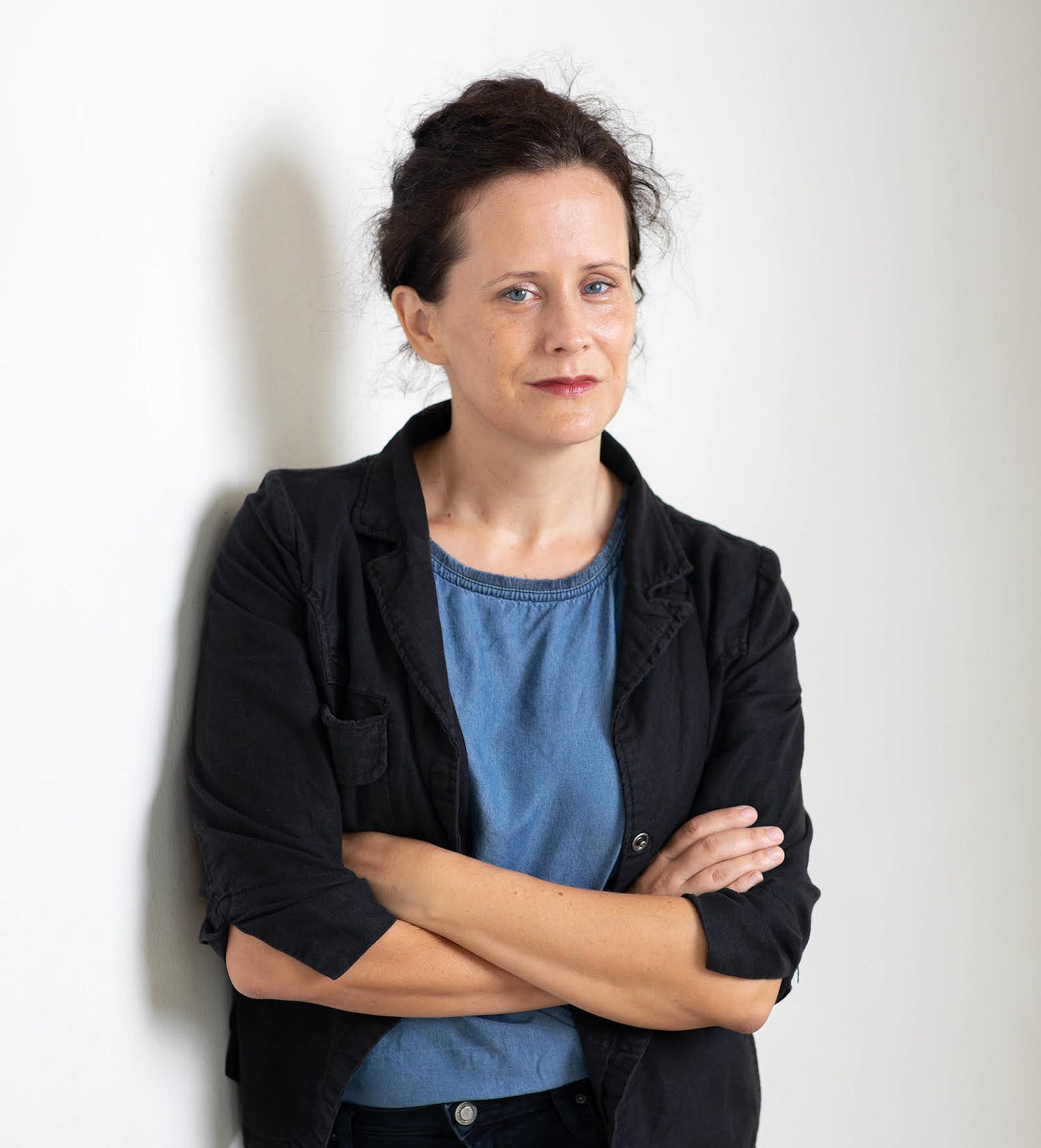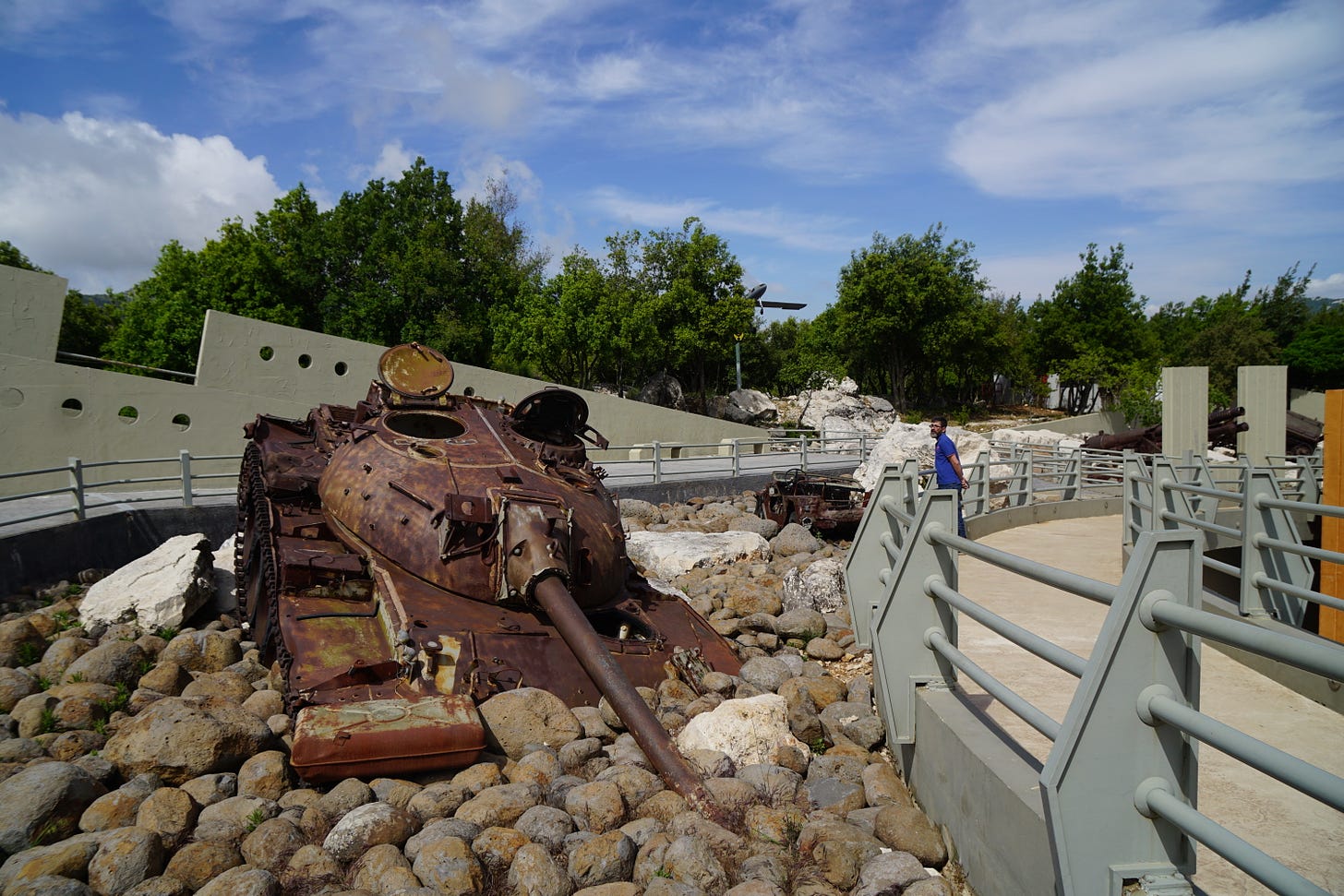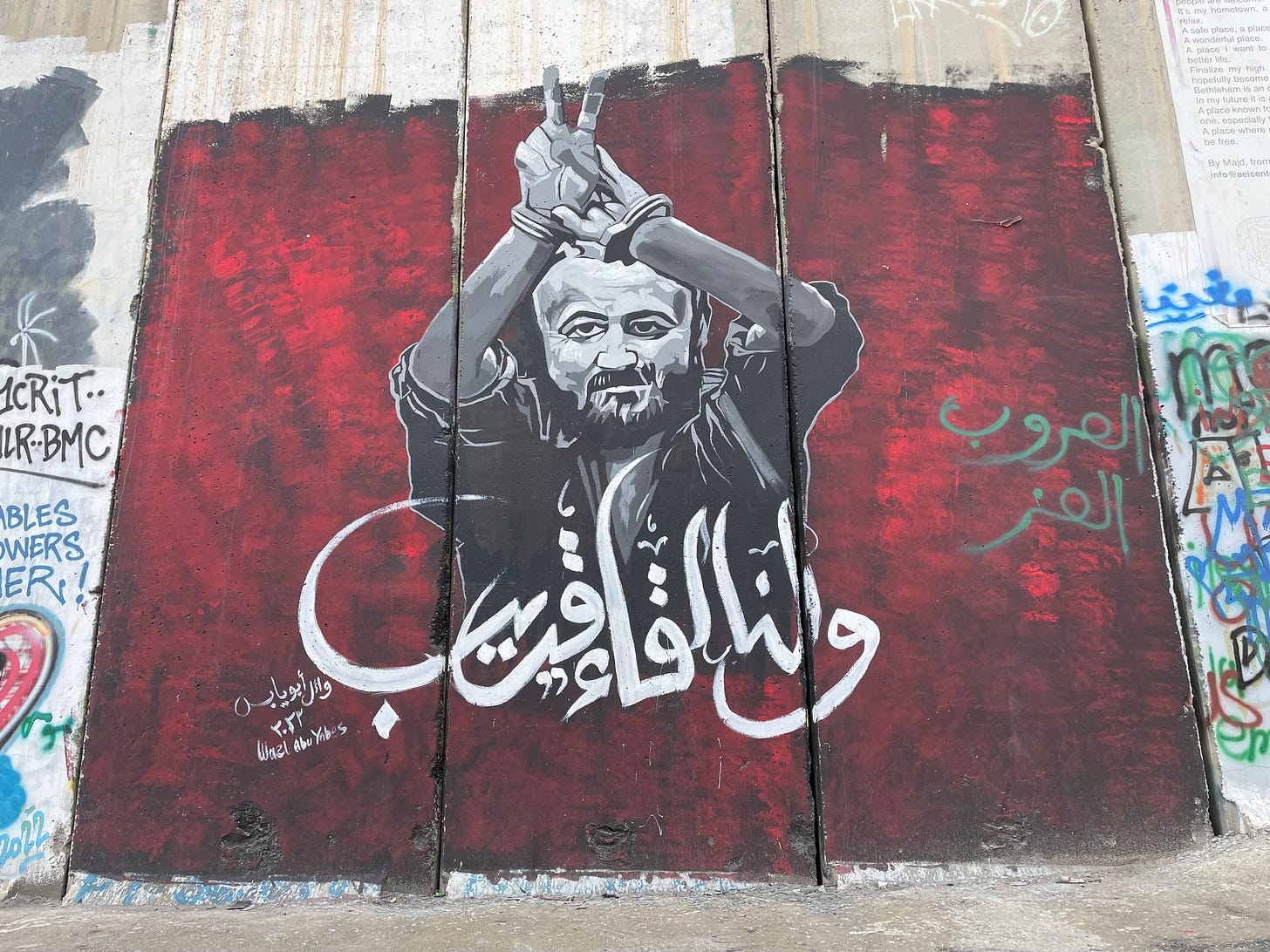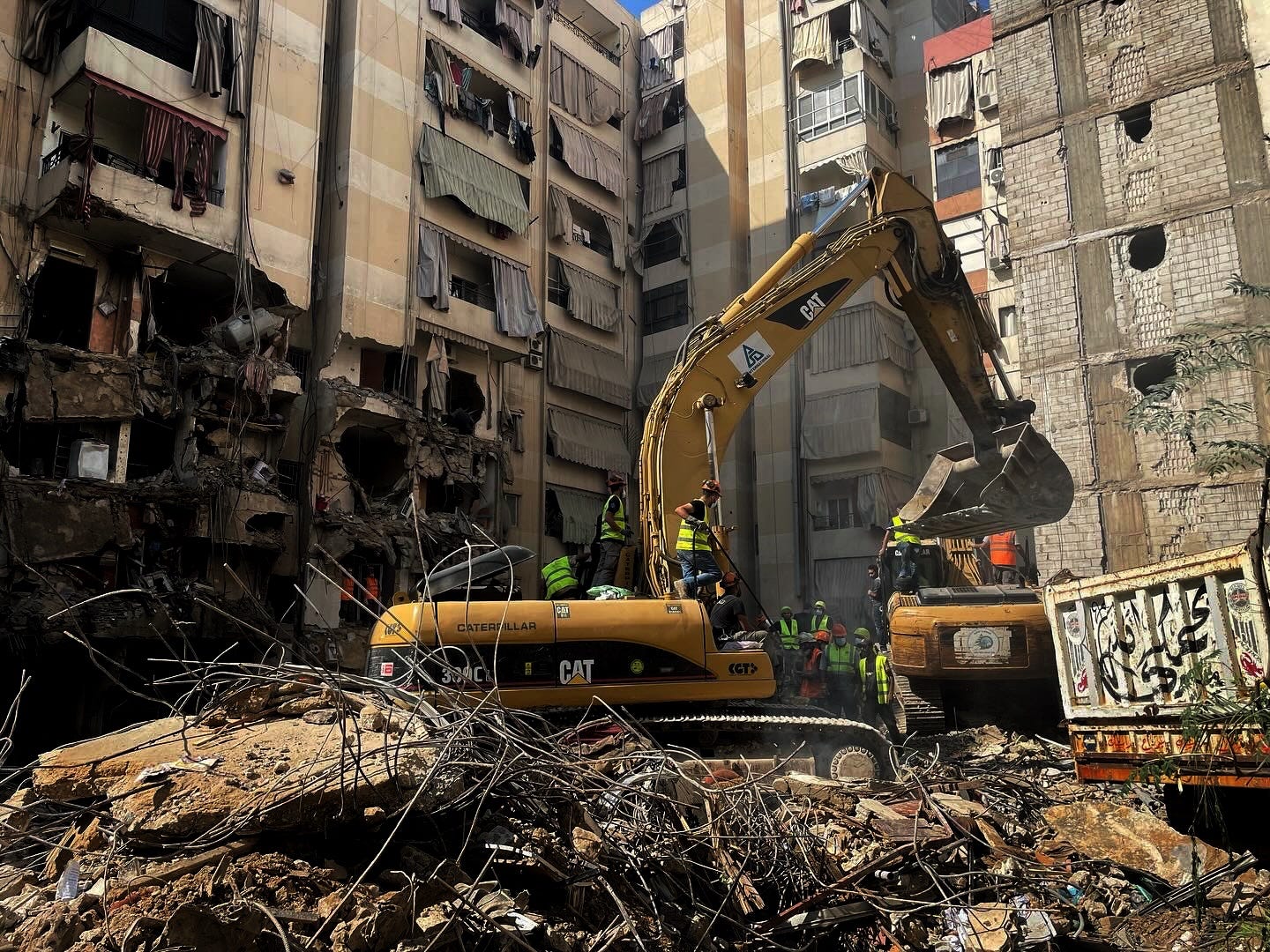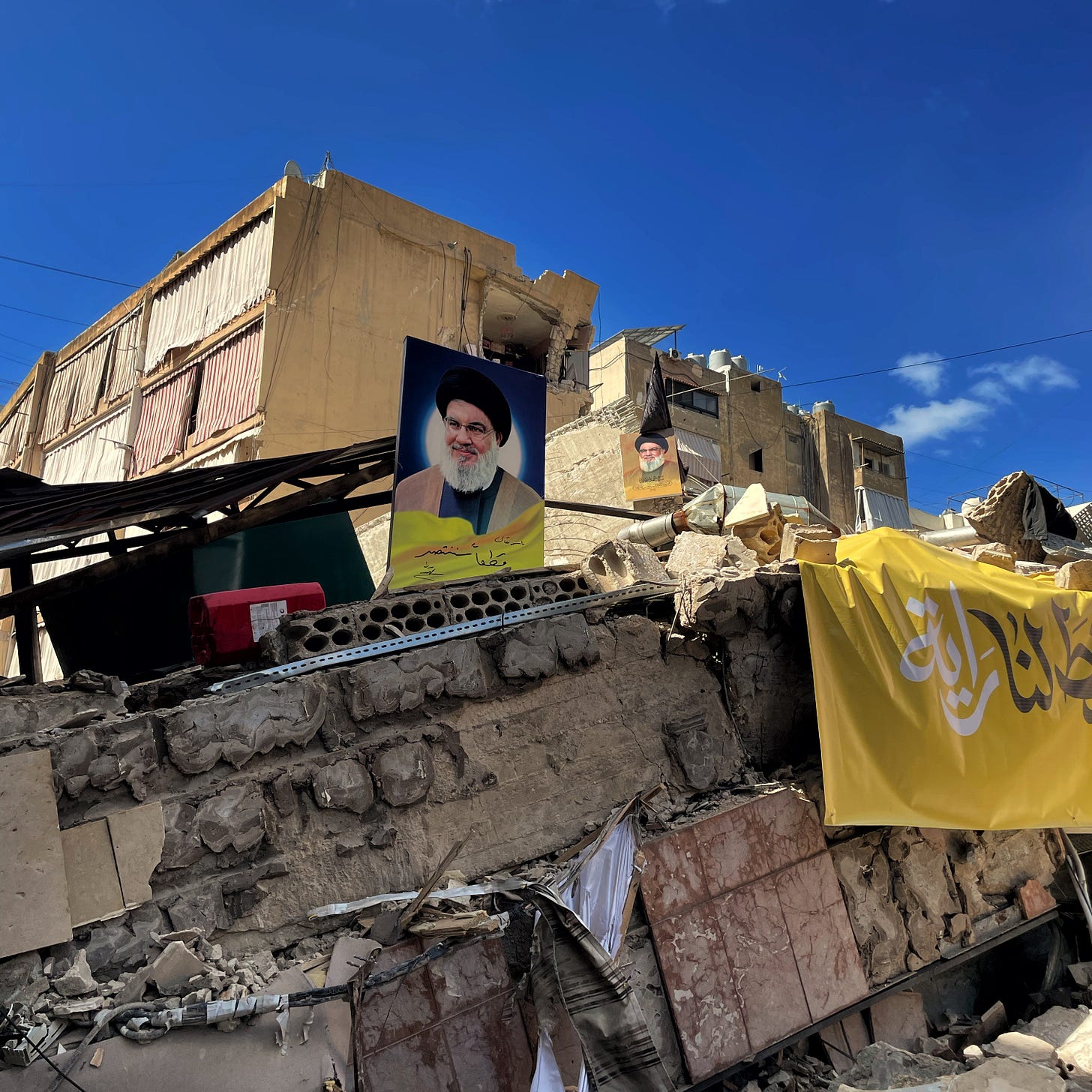Irish peacekeepers in war-torn south Lebanon // A veteran war reporter reflects on the last Lebanon war and American justice for Hezbollah attacks
Thirty Irish peacekeepers are currently manning a small United Nations outpost overlooking a parcel of land in south Lebanon that has long served as a hotspot in the border region. From UN outpost 6-52, the Israeli village and base of Avivm are visible across the Blue Line that separates Lebanese and Israeli territory. UNIFIL, the UN peacekeeping mission that has operated in south Lebanon for nearly five decades, oversees the withdrawal line.
On the other side of the outpost lies the Lebanese village of Maroun al-Ras, which Israeli forces occupied in the 80s and 90s. The village has since become a bastion of support for Hezbollah, the Iran-backed paramilitary organization that drove Israeli forces from south Lebanon in 2000.
You can read about the situation facing Irish peacekeepers in south Lebanon and what the future of the US peacekeeping force there could be in my article for Inkstick Media (no paywall).
In September I spoke with NY Times opinion writer and former LA Times bureau chief Megan Stack about her time covering the last war in Lebanon.
While serving as The LA Times bureau chief in Cairo, Megan Stack covered the last war between Israel and Hezbollah in 2006. The short but “ruthless” six-week war in southern Lebanon was triggered by Hezbollah ambushing and kidnapping several Israeli soldiers.
Stack was by then an experienced war reporter but found herself shaken by the recent murder of a journalist she knew by “a death squad” while out reporting during a particularly violent period in Iraq.
As the area around her was pummeled by Israeli airstrikes, Stack found she wasn't tolerating danger like she used to. “I was scared, and I don't remember ever being scared before southern Lebanon,” she says, speaking from her home in the suburbs of DC. “I didn't feel that I wanted to die by Israeli bombardment.”
She wondered how long the US would let Israel continue to bomb Lebanon: “what's the appropriate level of retribution?” Stack knew at some point “a switch” would be flicked and the strikes would stop - “I mean, that's crazy.”
While based in Jerusalem covering the Second Intifada in the 2000s she found herself confronted by the inertia that has allowed the Israel-Palestine conflict to simmer and periodically explode without a move towards a concrete resolution.
She describes browsing The LA Times bureau’s archive of old newspapers once and finding an old article about a Palestinian prisoner swap which read very much like a more recent piece she had written about yet another prisoner swap, along with similar quotes. “It gave me this feeling of vertigo, like I’m just repeating the motions that have been done before me and there’s all this human life being wasted in between,” she says. “You start to feel almost like you're a player in this performance.”
Stack’s reporting from the Middle East, along with accounts from Pakistan and Afghanistan, feature in her first book: Everyman in this Village is a Liar, a narrative account of the wars that followed the 9/11 attacks on America. “Only after covering it for years did I understand that the war on terror never really existed,” Stack writes.
“It's very hard for a country and very painful for a country to look at a war as fundamentally unjust,” says Stack. “I think we all have a tendency to give a little bit more leniency in our interpretation of what militaries are doing when it's our own military.” When Everyman in this Village is a Liar was first published, Stack was told she was anti-American - “In those early years, after September 11th, I felt very isolated in my analysis, because there was such an overwhelming descent in the US, and especially around the time of the Iraq invasion.”
The book’s prologue refers to a young male relative, John, who belonged to her father’s extended family of Irish Americans. Despite living in New York for a long time, Stack says her father’s forebears had kept marrying other Irish people - “when I go back and I look at all the surnames, I feel like I can see a map of Ireland in my genes.”
John was an adrift 16-year-old. With his family’s permission, he enlisted in the US military who quickly deployed the teenager as a US marine to Beirut in the early 1980s. As a bloody civil war raged in Lebanon, John was stationed in the US marine barracks in Beirut when it was blown up by Hezbollah in 1983. John survived the devastating attack but over 300 people including 241 US military personnel were killed.
“A bomb explodes and everything goes wrong. John lived, but he wasn’t alright,” writes Stack in the prologue. “A few years later he shot himself in the head. It was just before Thanksgiving. He was a father. He was young.”
“I remember it as a very sad time,” says Stack on our call.
Less than two weeks after speaking with Stack, I found myself at the still smouldering site of a large strike in a residential neighbourhood in southern Beirut. Missiles dropped by an Israeli jet flattened two residential blocks and killed Ibrahim Aqeel, a senior Hezbollah commander, who the US government says was a member of the cell which carried out the 1983 marine attack.
The US said it had no advance warning of the Israeli strike which killed 52 people, mostly civilians, but US National Security Adviser Jake Sullivan said that Aqeel had “American blood on his hands” and was “somebody who the United States promised long ago we would do everything we could to see brought to justice.”
I email Stack a few days later asking what she thinks about the news.
“What to say about Aqeel? I have so many thoughts.
First, it seems like his inevitable end; I doubt that he expected to die of old age. I don't feel outraged but it also doesn't give me any satisfaction or relief. I understand the US and Israel have wanted him dead for a very long time, and that there's a kind of collective sense that it's a win, it's payback, or it represents some kind of justice, as Sullivan suggested.
I've been steeped in this stuff for so long now that I just don't see it that way anymore. I look at Hezbollah and its fight with Israel (and the US for backing Israel) as a political problem; a problem of ideas. So you can kill a leader because you want to take a scalp, and that's part of the sort of ritualistic death that attends these conflicts. But it does nothing to kill the underlying idea or resolve the political conflict and therefore it is not, to my mind, a particularly useful thing to do, except perhaps in the sense of morale back home (whether that be Israel or in this case maybe the US).
In my mind, John enlisted in the Marines, and our government thrust him into a situation that was really quite far beyond our family's imagination or knowledge at that time. This may sound cold, but the choice to enter a conflict as a militant (whether that mean enlisting in a formal national army or joining a militant group) should come with the awareness that you may get killed, and that to some extent your death is part of the logic of the game you've decided to play.
I see not only Aqeel through that lens, but also John -- not that their level or involvement or moral choice is equivalent, but simply that they both made a conscious decision to go to war. To treat John otherwise would, in my opinion, strip him of agency and ignore the choice that he made.”
You can read my full interview with Megan Stack in The Currency here.

